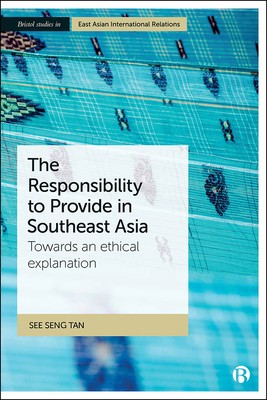
- We will send in 10–14 business days.
- Author: See Seng Tan
- Publisher: Bristol University Press
- ISBN-10: 1529200725
- ISBN-13: 9781529200720
- Format: 15.8 x 23.6 x 2 cm, kieti viršeliai
- Language: English
- SAVE -10% with code: EXTRA
Reviews
Description
Despite the long-held and jealously guarded ASEAN principle of non-intervention, this book argues that states in Southeast Asia have begun to display an increasing readiness to think about sovereignty in terms not only of state responsibility to their own populations but also towards neighbouring countries as well. Taking account of the realities of interstate cooperation in the region, and drawing on the work of Emmanuel Levinas, the author develops a new theoretical framework reflecting an evolution of attitudes about state sovereignty to explain this emerging ethic of regional responsibility.
EXTRA 10 % discount with code: EXTRA
The promotion ends in 23d.15:14:20
The discount code is valid when purchasing from 10 €. Discounts do not stack.
- Author: See Seng Tan
- Publisher: Bristol University Press
- ISBN-10: 1529200725
- ISBN-13: 9781529200720
- Format: 15.8 x 23.6 x 2 cm, kieti viršeliai
- Language: English English
Despite the long-held and jealously guarded ASEAN principle of non-intervention, this book argues that states in Southeast Asia have begun to display an increasing readiness to think about sovereignty in terms not only of state responsibility to their own populations but also towards neighbouring countries as well. Taking account of the realities of interstate cooperation in the region, and drawing on the work of Emmanuel Levinas, the author develops a new theoretical framework reflecting an evolution of attitudes about state sovereignty to explain this emerging ethic of regional responsibility.


Reviews